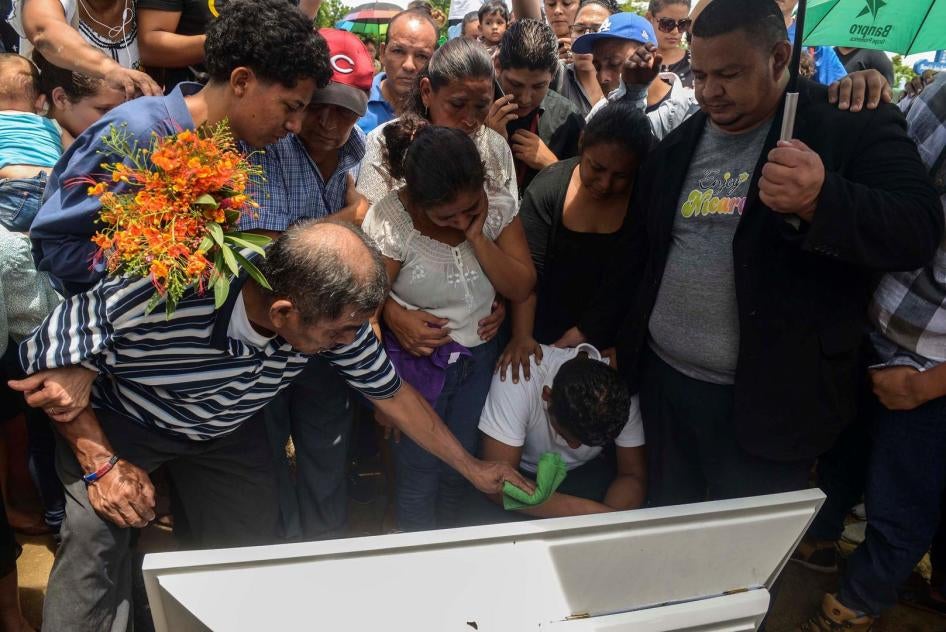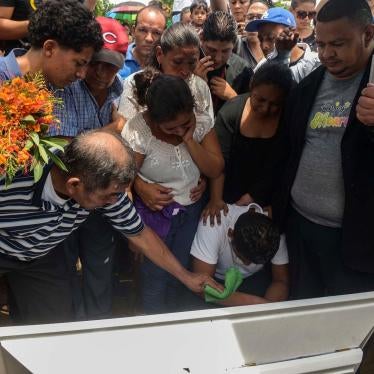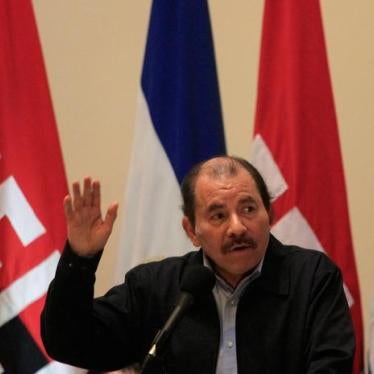“Ortega's move to expel the top UN human rights body exposes his administration’s determination to conceal its brutality,” said José Miguel Vivanco, Americas director at Human Rights Watch. “The Security Council should hold an urgent meeting on this crisis, condemn the abuses and pressure the country to cooperate with international human rights bodies.”
Authorities have consistently obstructed the work of OHCHR and the Inter-American Commission on Human Rights (IACHR) for the past two months, refusing to provide official information and barring them from attending court hearings and entering detention sites.
Since April 18, some 322 people have been killed and 2,000 injured in Nicaragua, largely because of police and armed gangs’ violent repression of protests.
Police and armed gangs have also abducted or arbitrarily detained hundreds of people across the country. Detainees have been subject to beatings, waterboarding, electric shocks, and rape, victims and witnesses told Human Rights Watch.
In the first weeks of the crisis victims were released after being subject to egregious abuses, but since July the Prosecutor’s Office has charged hundreds of suspected dissidents with offenses including “organized crime” and “terrorism.” At least 85 face terrorism accusations, according to the Nicaraguan Center on Human Rights.
In August, the UN human rights office reported that at least 300 people were facing judicial proceedings for their participation in the protests. In contrast, no government official had been charged in connection with the widespread abuses.
Ortega has rewarded top officials who played a leading role in the brutal repression. On August 23, he promoted General Francisco Díaz from deputy chief to chief of the National Police shortly after Diaz was sanctioned by the US Treasury Department under the Global Magnitsky Act, alleging that under his command “the National Police has engaged in serious human rights abuse against the people of Nicaragua.” Díaz is the father-in-law of Ortega’s son Maurice.
Large numbers of Nicaraguans have been victims of internal displacement “due to the upsurge and prolongation of violence that had arisen after the beginning of the repression of the protests,” according to the Inter-American Commission on Human Rights.
The widespread abuses that have taken place across the country have also pushed tens of thousands of Nicaraguans to flee abroad. At least 23,000 have sought asylum in neighboring Costa Rica since the start of the crackdown, and hundreds of Nicaraguans have also fled to Mexico, Panama and the United States.
“The seriousness and scale of rights violations in Nicaragua require a categorical response from the Security Council,” said Vivanco. “The council should demand an end to the crackdown and consider imposing targeted sanctions against high-level officials who bear responsibility for the abuses unless they reverse course and ensure perpetrators are held accountable. The brutality in Nicaragua cannot remain unchecked.”








